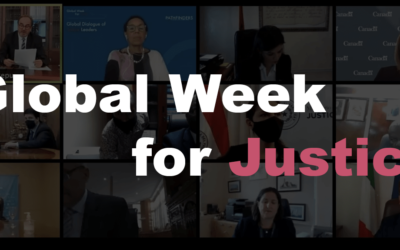Some certainly are. This week there’s been a big UN meeting about the world’s poorest countries - the 4th UN conference on the Least Developed Countries...
Andy Sumner
Are 1 in 3 Africans middle class?
Yes says a new report from the African Development Bank which says one in three (34%) or 313m of Africa's nearly 1bn people are now middle class (living on...
Reserves, Foreign Relations and Risk in the 4-speed world
I've been struck by a lot of thought provoking stuff in the Economist over the last couple weeks on China suggesting greater global risks in the near future...
How will more UK aid reduce poverty in fragile, corrupt and ‘non-free’ places?
A new report, covered by the UK Guardian says that DFID, the UK aid agency, needs to be careful 'to minimize fraud and corruption risks' as it spends more aid...
Do international NGOs have a future?
More horizon scanning out this week – it’s a growth industry - from the Irish NGO, Trocaire (and some inputs from IDS). This scan is a bit different -...
Aid 2.0: What does aid look like with drastically fewer poor countries?
There’s a new paper out from the Washington-based Centre for Global Development, on the ever declining number of poor countries. Moss and Leo estimate that...
Poverty, Inequality and Revolution: Who’s next?
Tunisia, Egypt, Bahrain. Who's next? Yemen or Libya or... Sudan, or Angola? The race is on for a small set of numbers to predict major upheavals. Violence...
Aid, India and the billion pound peanuts (again)
UK aid to India is in the news again following a speech on emerging powers by UK Aid's Secretary of State, Andrew Mitchell at Chatham House which was carried...
Are you ready for MDGs 2.0?
The UN this week announced a June MDG review meeting in Tokyo. This is the conference that Japanese Prime Minister Naoto Kan at the MDGs Summit proposed that Japan convene in 2011 (see page 4, paragraph 1 of his speech here).
One thing it probably won’t discuss (yet) is what might replace the MDGs in 2015 which is likely to be one of the big global development policy debate of the next few years.
At the MDG summit last September the outcome document requested the President of the UN general assembly to organise a ‘special event’ in 2013 ‘to follow up on efforts made’. However, it is not yet clear exactly what this will mean. The outcome document also mandated the UN Secretary General to initiate a consultation process of what would come after 2015, and to recommend in his annual reports ‘further steps to advance the United Nations development agenda beyond 2015’.
It is possible though that there will be neither an agreement on any post-2015 framework nor an extension of the current MDGs.
Not surprisingly, the subject of what a new global framework might look like in detail is really starting to bubble up in debates.
How much does inequality matter to poverty reduction?
Quite a bit it seems judging by the poverty projections in the new Brookings paper that shows what’s possible if inequality is unchanging. In short, much,...
Did the world get less free last week?
Yes, according to the annual survey of US ‘independent watchdog’ Freedom House and carried by Foreign Policy and Voice of America. Every year the...
Aid, India and Peanuts
Why would India accept peanuts?
More from Global Dashboard
Justice is missing the boat
The year 2020 will go down in history as the year when much changed. One thing seems to remain constant: the fact that the justice sector is slow to change. As a consequence, it seems to be missing a rather big boat. Good things often come out of bad things. It is no...
An emerging ministers of justice movement
Since April, we have been calling for justice leaders of the world to get out of their national cubby holes and come together to share fears, failures, successes, and strategies, just like public health ministers are doing. The COVID-19 crisis is too big and too...
Un mouvement émergent des Ministres de la Justice
Depuis le mois d'avril, nous appelons les leaders de la justice du monde entier à sortir de leur cagibi national et à se réunir afin de partager leurs craintes, leurs échecs, leurs succès ainsi que leurs stratégies, comme le font les ministres de la santé publique. La...


